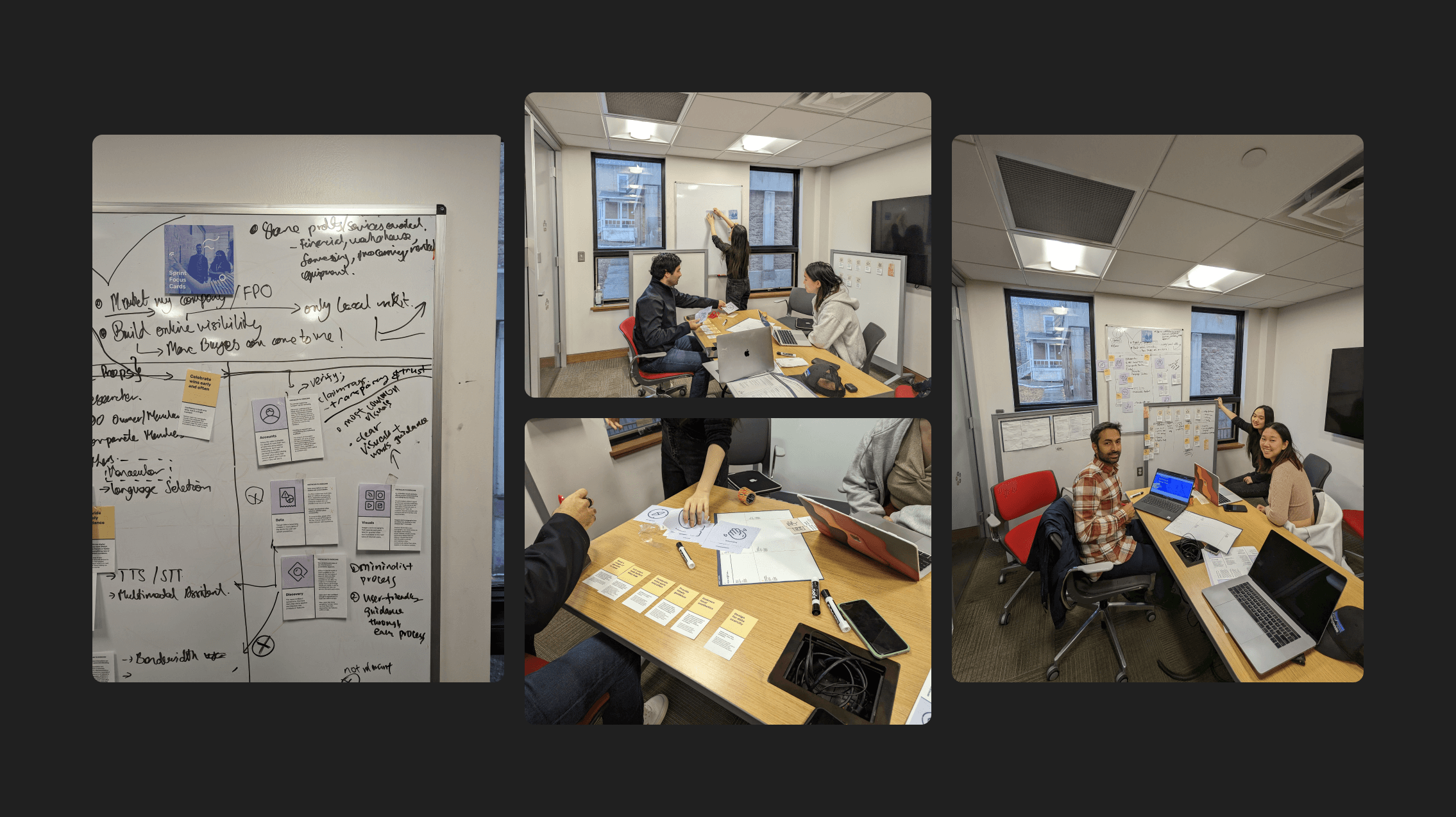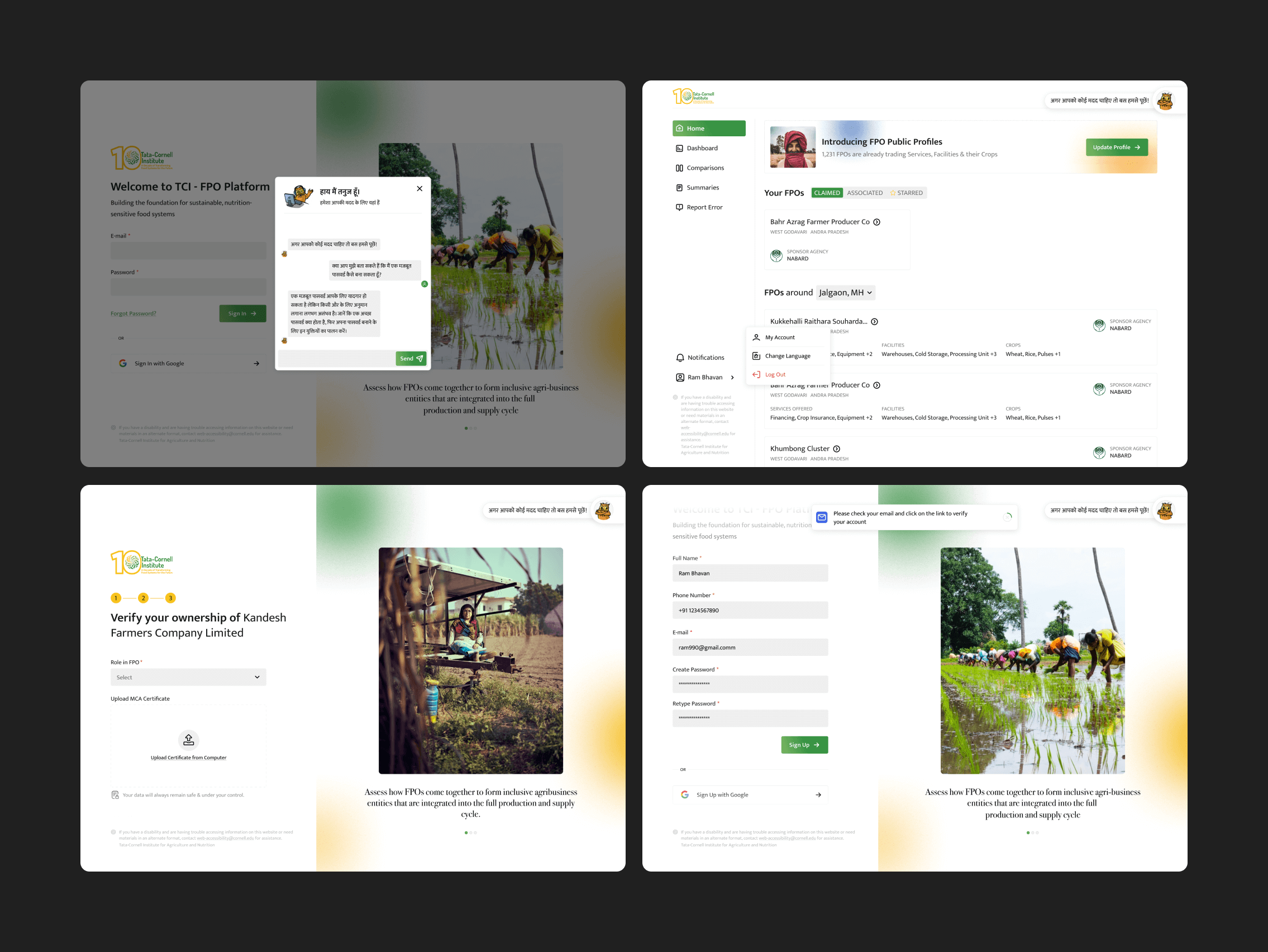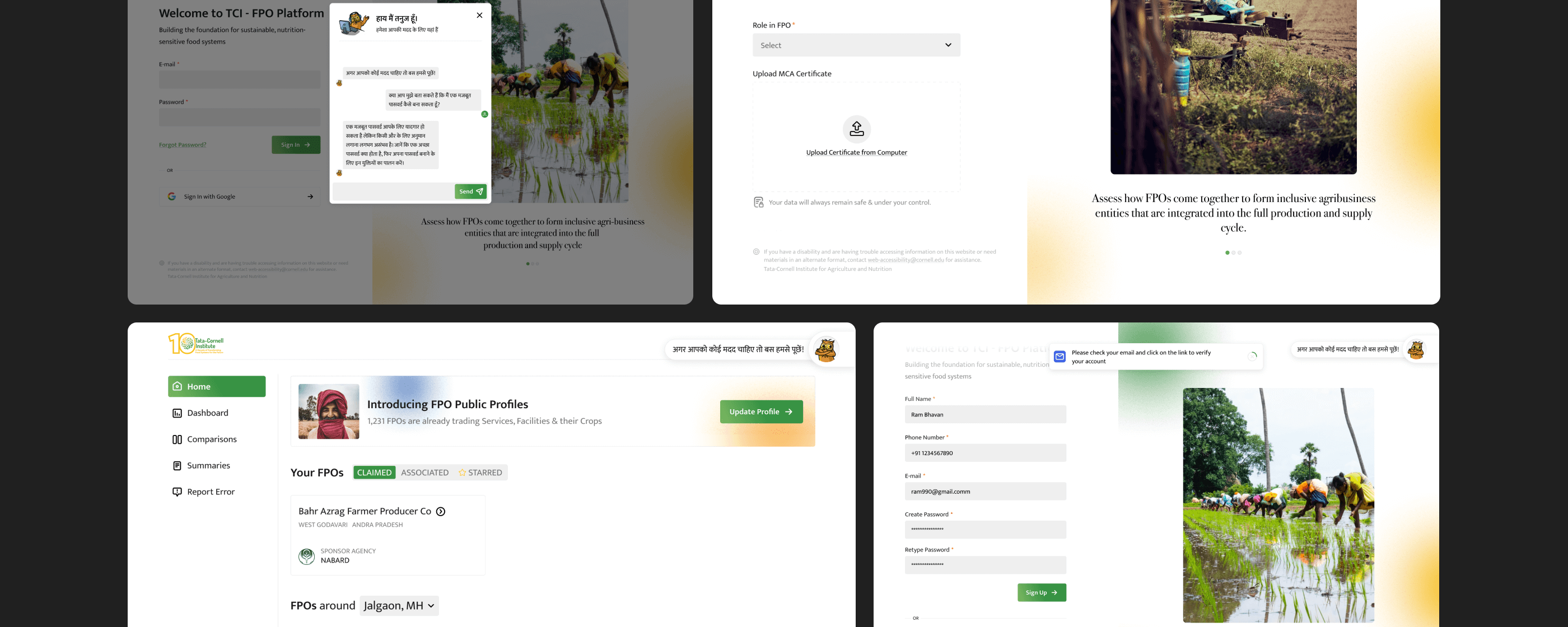Tata Cornell Institute - FPO Platform
Building an onboarding journey for smallholder farmers and FPOs (Farmer Producer Organizations) on digital platforms
Indian Agriculture sector has progressively become predominantly smallholder driven as ~86% farmers possess less than two hectares of land. These smallholder farmers own ~46% share of arable area in the country. According to the Indian Agricultural Census (2015-16), the average landholding size has declined from 1.41 hectares in 1995-96 to 1.08 hectares in 2015-16. Researchers believe that small landholding is a challenge in eking out a liveable livelihood for an average family size of 4.6 in rural India. Many have identified challenges in access to quality inputs, institutional credit, and other resources, organized markets, modern farming technologies, etc. Economies of scale are not available to most smallholders, which becomes a weakness as overheads on inputs and services purchased are very high. Aggregation models like Farmer Producer Organizations (FPOs) hence are potential institutional interventions that help redress the constraints of small farms, wherein groups of producers jointly manage resources or access credit, inputs, information, and product markets to reduce transaction costs. Successful aggregation models have shown increasing economies of scale, decreased transaction and coordination costs, improved access to markets, and investment in yield-stabilizing technologies like irrigation and improved crop varieties to be the main benefits of organizing farmers.
Scholarly work in the broad domain of co-operative organizations in the non-financial sector nevertheless has suffered severely due to a lack of disaggregated data required for examining organizations that operate on the mutuality principle. There is a lot of talk and discussion about Farmer Producer Organizations (FPOs), and the laws allow for FPOs to be incorporated as a co-operative society (and can federate under the same law), as a Mutually Aided Co-operative Society (in States that have passed a liberal co-operative law based on mutuality), and as a Farmer Producer Company (FPC) under the Companies Act. However, for several years the State has not disclosed any statistics under any of these categories. The RBI used to provide yearly co-operative data under the series "Statistical Statements Relating to the Co-operative Movement in India" in two categories: credit cooperatives and non-credit cooperatives. After the National Bank for Agriculture and Rural Development (NABARD) was formed from the Reserve Bank of India's Agricultural Refinance branch, NABARD released statistics on non-credit cooperatives for a few years before it was discontinued. There have been several allusions to the need of integrating the returns of cooperatives and non-financial institutions that these individual organizations file with their respective authorities, but data and figures have simply not been available. Thus, a majority of understanding of the FPO financial ecosystem is built on a patchwork of organization consolidation, sectoral studies, case studies of organizations, and practice documentation.
In this context, the TCI FPO database is a consolidated resource providing a wealth of comprehensive data on FPOs in India. It allows users to explore the FPO ecosystem in India, with the flexibility to take a wide view of FPOs across states or dig deep into the cropping, legal and financial details of individual FPOs. The database features an array of key performance indicators and metrics that enable users to analyze the performance and economic viability of FPOs.
While the Database is an attempt at aggregating data around different forms of FPOs and presenting a standardized distribution code for future data assimilation, assessment, and interpretation. It lacks crucial functions like information updating through FPO owners and market actors to engage with FPOs. Considering discussions with project owners who plan to include new features in future releases, we have taken up the task to build a responsive user onboarding interface for various stakeholders of the FPO platform.


Research Statement
Continuing the discussion on the technology development challenges for the marginalized population in the agriculture sector, the study aims to improve digital platform accessibility and provide a smooth onboarding experience for small farmers and FPOs. Thus, the project explores avenues in HCI4D and ICT4D research to build a decoupled user onboarding journey for the following target group: FPO users (includes farmers associated with FPOs or other employees of FPOs engaged in daily operations for the organization) The specific research question that the study shall answer the following research question: How to enable smallholder farmers and farmer organizations to improve online visibility through a simplified onboarding journey on the FPO Platform?
Designing for the FPO Users
Our target group represents a unique opportunity for businesses, governments, and technologists to innovate, as these users often have different needs and preferences than those who have been early adopters of technology. Designing an app [Fig 1 in the Report] such as the FPO Platform to serve this market is a complex task, requiring a deep understanding of user needs in order to create a successful product. This section will explore the key considerations we considered while designing the FPO Platform that is able to meet the needs of the ‘Next Billion Users’, with a particular focus on farmers.
Special thanks to all team members: Tanuj, Selene, and Han.
